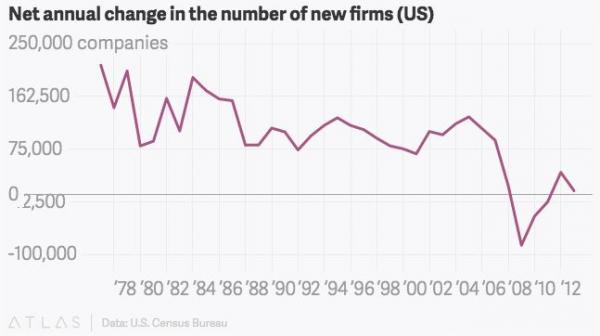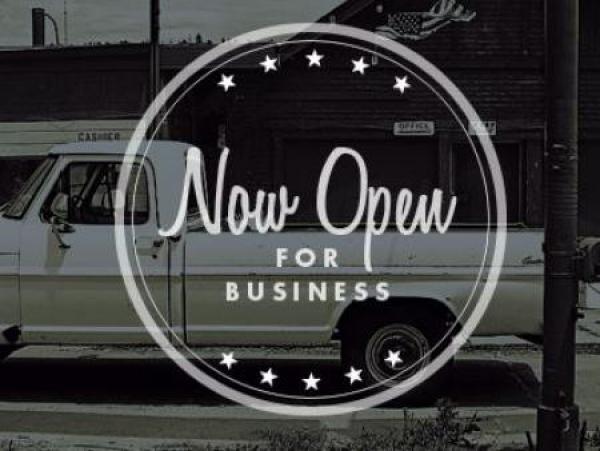For a country that prides itself (or used to at least) on the success of the entrepreneur and small business creation, a disturbing trend has developed. According to according to a new analysis by the Economic Innovation Group, fewer new businesses were created in the last five years than any other period since at least 1980.

“It’s hard to put into scale the collapse of new business formation. We have no precedent for that rapid and steep of a decline. It will have a ripple effect in the economy. You’re going to feel that impact five, 10, 15 years in the future” said John Lettieri, co-author of the report and co-founder of EIG.

Businesses that did form during the last five years are far more concentrated than ever before, with just 20 counties accounting for half of the country’s total new businesses, all of them in large metro areas around large cities such as Los Angeles, Miami, Chicago, Dallas, New York, and San Francisco Quartz reports.

As large metro areas saw new business formation, sparsely populated areas were hardest hit. What’s also important to note, is that the new businesses are more tech oriented and less of the traditional construction firms and restaurants that have helped the middle class in prior years. A shift that has been driven primarily by entrepreneur access to capital.
From reports
Particularly hard hit were sparsely populated, rural areas. In the last post-recession recovery, counties with 100,000 or fewer people generated one-third of the country’s new firms (net) between 1992-96. By comparison, those counties lost 1.2% of their businesses between 2010-2014.
The second story is that the majority of new companies look more like tech companies than the construction firms and restaurants that have typically anchored middle-class prosperity. New business formation over the past five years tracked very closely with access to capital, particularly venture and other forms of risk capital, says the report. Of the top 20 counties, 13 were in just three states (California, New York, and Texas) with ample access to such money. That shift has given highly educated urban dwellers another advantage at the expense of everyone else, a disparity polls suggest is fueling the rise of Republican presidential candidate Donald Trump among working-class, rural Americans.











Leave A Comment